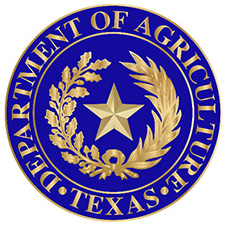Farmer confidence plunges as trade war expands
Although most producers say Trump tariff payments will “completely or somewhat” relieve the impact of the Sino-U.S. trade war on their operations, farmer confidence is plummeting, according to a Purdue University poll released Tuesday. The Ag Economy Barometer, a gauge of the health of the agricultural economy, fell from a record high of 153 in July to the lowest reading — 124 — since May.
Retaliatory tariffs bite U.S. farmers, not the importers
For nine of the 11 commodities examined by ag lender CoBank, “U.S. producers — not the importing country or its consumers — paid the cost” of retaliatory tariffs. “U.S. farms are taking the brunt of the retaliatory tariffs placed on their products, reflecting the lopsided balance of power between U.S. producers and their importing customers,” concluded three CoBank analysts.
TODAY’S QUICK HITS
Teff, the new American grain? (Los Angeles Times): Best known as the East African grain used in making injera, a spongy flatbread, teff is being studied as an alternative crop for California’s Central Valley, both for its nutritional qualities and for its hardiness in a warmer climate.
Trade war costs Nebraska $1 billion (DTN/Progressive Farmer): The Nebraska Farm Bureau said the state’s farmers and ranchers will lose $1 billion in crop and livestock revenue this year because of retaliatory tariffs.
Drought-proofing barley (Beverage Daily): Scientists from Heriot-Watt University have identified the gene in barley that will make the grain, used for food and beverages, resistant to drought, work that carries implications for wheat, corn and rice.
Keep the focus on trade negotiations (AFBF): The largest U.S. farm group said trade-war payments are helpful but “the Trump administration must focus on keeping the negotiations with China on course to resolve this trade war.”
Brazil opens door to more U.S. ethanol (Reuters): Brazil said it will allow duty-free import of up to 750 million liters, or 198 million gallons, of ethanol in the year ahead, up from the previous 600 million liters, in a move expected to benefit U.S. biofuel exporters and eventually result in a larger tariff-free U.S. quota for Brazilian sugar.











